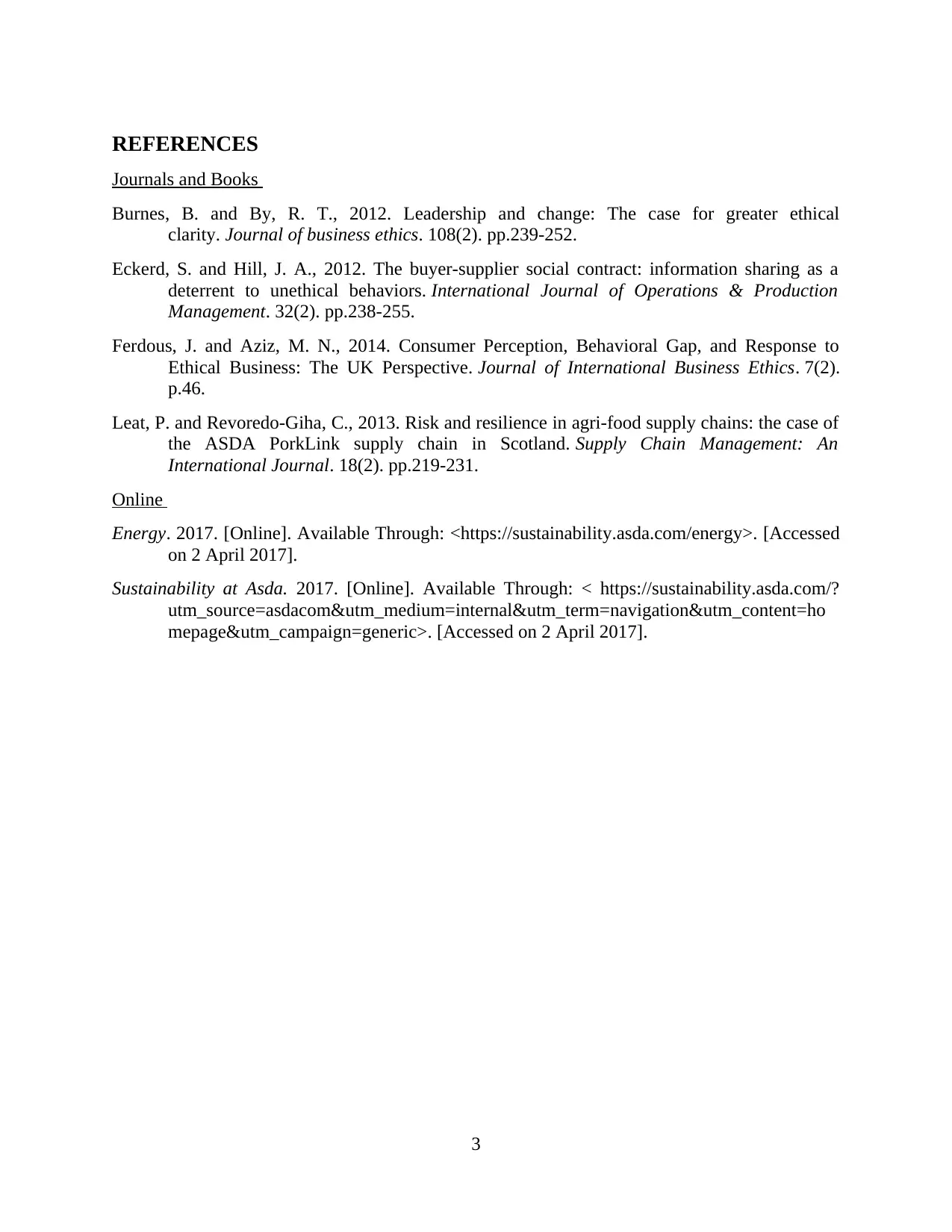Analyzing Asda's Ethical Operations: A Business Ethics Essay Example
VerifiedAdded on 2020/02/17
|4
|807
|441
Essay
AI Summary
This essay provides an analysis of Asda's ethical operations, focusing on how the company integrates ethical considerations into its business practices. It begins by defining business ethics and corporate social responsibility, setting the stage for an examination of Asda's specific initiatives. The essay highlights Asda's ethical policy for suppliers, emphasizing its commitment to international labor standards and national regulations. It delves into Asda's sustainability efforts, including the Sustain & Save Exchange, waste management strategies, and energy-saving technologies like solar panels and rainwater harvesting. Furthermore, the essay explores Asda's community engagement, including programs for young people, health and well-being initiatives, and support for local causes. It also addresses the company's animal welfare policies. The essay concludes that Asda demonstrates a comprehensive approach to operating ethically across various dimensions of its business, including suppliers, customers, community, environment, and employees. It references several sources, including academic journals and online resources, to support its claims.
1 out of 4











![[object Object]](/_next/static/media/star-bottom.7253800d.svg)